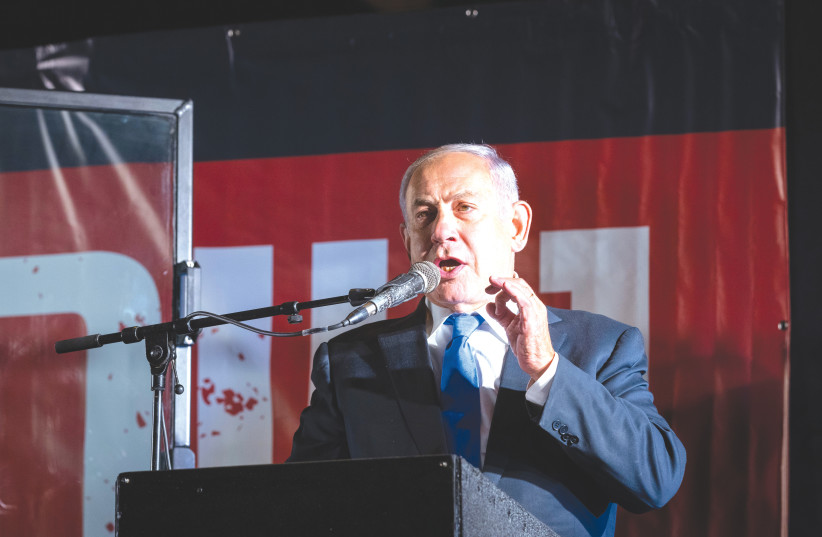We feared it could eventually come to this. After months of demonizing and defaming Prime Minister Naftali Bennett, a vicious death threat – bullet included – has been sent to his family. As we learned all too tragically in the Shoah, it always starts with vile words but inevitably ends with violent actions.
The horrendous social discourse vis-à-vis Bennett that began even before he assumed his post has been a continuing source of embarrassment and shame for the State of Israel. Bennett and his wife have been subjected to every kind of curse imaginable, including those vomited from members of the government directly on the Knesset floor.
The opposition – which arrogantly boasted that Bennett’s coalition wouldn’t last a month, let alone a year – mock and malign him at every opportunity. Former prime minister Netanyahu calls him “a weakling”; renegade Yamina MK Amichai Chikli says “he has no God”; and former partner and now rival Bezalel Smotrich infamously called for synagogues to bar the prime minister and his allies from praying at Passover services. Opponents have even gone so low as to harass the Bennett children at their school.
Shaming and bullying have become serious problems within Israeli society, targeting vulnerable children in the classroom and on social media. Often, the ridicule aimed at these children turns toxic and leads to physical attacks against them. Teachers and responsible parents attempt to deal with the crisis, but can we really blame the kids, when the adults – including and especially those who would deem themselves “leaders” – set the worst possible example for everyone else in the country?
These acts of shaming and bullying, say the experts, derive primarily from one of two sources. Either the attacker has an over-inflated ego and, drunk with power, looks to bully and victimize those he deems weak and defenseless; or he actually has low self-esteem and seeks to advance his image and standing by shaming and demeaning the value of others. In almost all cases, the problem lies not with the attacked, but with the attacker.

Benjamin Netanyahu held the reins of power so long that he thinks he owns them. Though he boldly trumpets his title as the leader of the Right, it was he who prevented a right-wing government from forming by insisting that he and he alone could head it, rejecting even the pleas of members of his own party to step down, even temporarily, so that a rightist coalition could be formed.
He calls Bennett “weak,” but it was this so-called “Mr. Security” who committed arguably the worst security breakdown in our history, by setting loose upon the Israeli people more than a thousand murderous terrorists in the Schalit deal, which has resulted in numerous murders and terror attacks that sees no end.
Smotrich prides himself as the “Great Torah Hope” of the religious Zionist community but, as a rabbi and one of the builders of the synagogue where the PM sometimes prays, I can assure you that the community – and certainly God – welcomes the prime minister’s prayers and recognizes his achievements. True, Ra’anana neighbors have been dealing with traffic headaches and security constraints surrounding the Bennett residence, but none would ever wish his demise over it.
Through all the vitriol and violent speech directed at him, Bennett has held his own and, with rare exception, has refused to drag himself down to the depths of his opponents and answer in kind. Even now, after the death threat, he has responded with dignity, calling for “calm and reconciliation” rather than revenge or retaliation.
He recognizes that, sadly, the assassination of a prime minister is no longer an impossibility, and so he refuses to fan the flames of conflict. In a week wherein we commemorate the single greatest tragedy in our history, no one should dare contribute to an atmosphere of hate or disunity.
We have an expression in Hebrew, a twist on the Torah verse, Tamei, Tamei Yikra, (those who are impure, call others impure). The latest attack against our country’s prime minister should be a mirror into which every citizen should stare, and deeply examine his or her own actions.
The writer is director of the Jewish Outreach Center of Ra’anana; jocmtv@netvision.net.il
